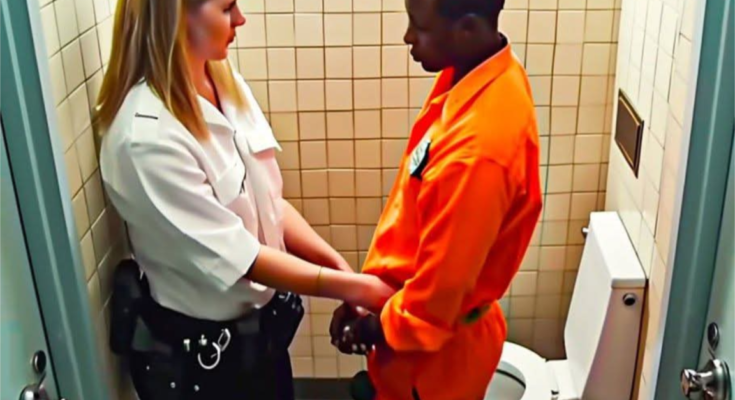In another shocking event, a female officer from New York helped an inmate escape by smuggling tools hidden in frozen meat. The case inspired the 2018 Showtime series Escape at Dannemora, which dramatized the real-life scandal that captivated the nation.
What Drives These Actions?
Experts say the environment within prisons can be a pressure cooker for emotional vulnerability. Inmates, especially those serving long sentences, may develop deep psychological bonds with guards—sometimes referred to as “emotional grooming.” For some officers, long shifts, isolation, and emotional stress can lead to poor judgment and blurred professional boundaries.
“It’s a power dynamic that’s often misunderstood,” says Dr. Karen Ellis, a criminal psychologist. “In some cases, inmates exploit officers’ emotional weaknesses. In others, officers themselves cross lines due to loneliness, thrill-seeking, or genuine emotional connection. But none of these justify such actions in a law enforcement setting.”
Consequences and Accountability
While some of these relationships may seem like “harmless affairs” on the surface, the consequences are severe. Officers involved in misconduct often face:
Criminal charges (including sexual assault if the inmate cannot legally consent) Termination and loss of pensions Public shame and damaged reputations Civil lawsuits from victims or the state
Criminal charges (including sexual assault if the inmate cannot legally consent) Termination and loss of pensions Public shame and damaged reputations Civil lawsuits from victims or the state
Inmates involved also face disciplinary action—often including solitary confinement, revoked privileges, and delayed parole.
Reforms and Preventive Measures
Many prison systems are now enforcing stricter training, mental health support, and surveillance protocols to prevent these incidents. Female officers—who make up a growing percentage of correctional staff—often request better support systems and more structured emotional safety training to deal with the high-pressure environment.
Yet, with every new case, the public is left wondering: How much goes unnoticed? And what will it take to restore full integrity behind prison walls?
⚖️ Final Thoughts
These stories are more than salacious headlines—they are warning signs of cracks in the system. They reveal the very human struggles of people in high-stakes environments, and they challenge us to rethink how we train, support, and monitor the individuals entrusted with authority.
The badge comes with responsibility. And when that trust is broken—even behind locked doors—the ripple effect can reach far beyond the bars.



